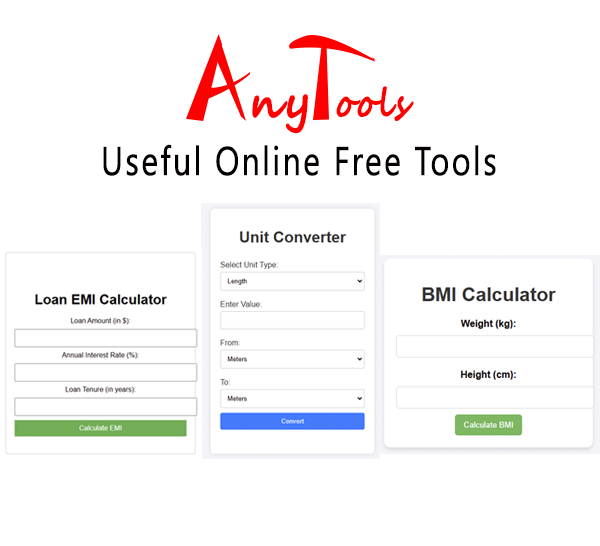Unit Converter Tool
A Unit Converter for Length, Weight, and Temperature allows users to convert values between different measurement units.
Length- Meters
- Kilometers
- Miles
- Kilograms
- Pounds
- Celsius
- Fahrenheit

BMI Calculator Tool
A BMI (Body Mass Index) Calculator is a tool used to measure body fat based on a person's weight and height. It helps determine if someone is underweight, normal weight, overweight, or obese.
If BMI < 18.5 = Underweight
If BMI >= 25 = Overweight

Loan Calculator Tools
A Loan EMI (Equated Monthly Installment) Calculator helps users calculate the fixed monthly payment they need to make when repaying a loan. It considers the loan amount, interest rate, and loan tenure to determine the EMI.

Coming Tools
Text to Voice
Lorem Ipsum is simply dummy text of the printing and typesetting let. Lorem ipsum dolor sit amet, consectetur adipisicing elit.
Image Optimization
Lorem Ipsum is simply dummy text of the printing and typesetting let. Lorem ipsum dolor sit amet, consectetur adipisicing elit.
Health Care
Lorem Ipsum is simply dummy text of the printing and typesetting let. Lorem ipsum dolor sit amet, consectetur adipisicing elit.




